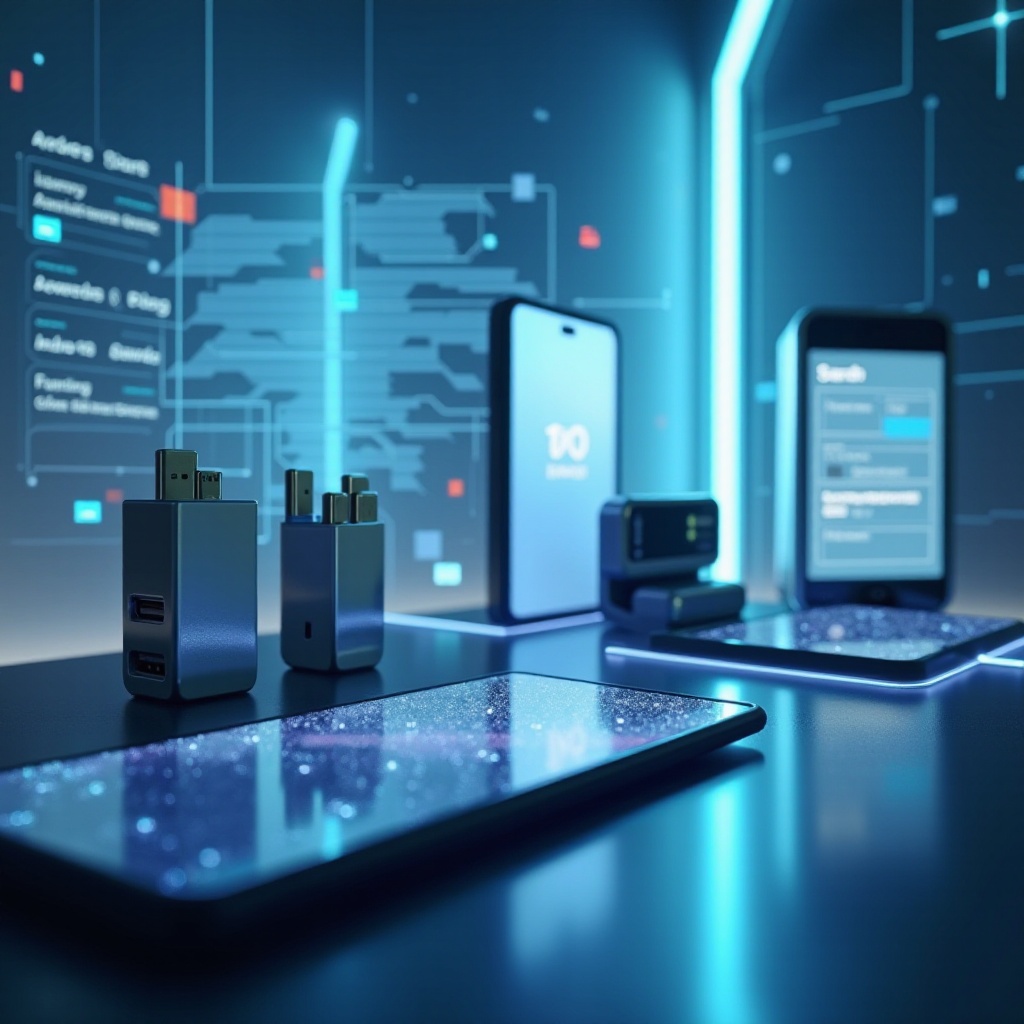The 2024 Guide to Data Portal Types for Phones
Introduction
Smartphones have revolutionized the way we communicate and access information. A pillar of this connectivity lies in efficient data portals for phones. These tiny but crucial components connect our devices for charging, data transfer, and more. As technology evolves, so do these portals, and staying informed can help you choose the best one for your needs.
In this comprehensive guide, we explore the different data portal types for phones available in 2024, including USB Type-C, Micro-USB, and Lightning Ports. We contrast their features and discuss emerging innovations like wireless data portals. Understanding these aspects will guide you in selecting the right data portal for your phone.

What Are Data Portals?
Data portals serve as essential interfaces for connecting a smartphone to various devices and peripherals. These connections enable critical operations like data transfer, charging, and syncing with other electronic gadgets. The effectiveness of your phone’s data portal can influence its overall performance and user experience.
Modern data portals are designed to manage a range of tasks seamlessly. They link your phone to computers, power adapters, headphones, and even external storage devices. They are integral for maximizing your phone’s potential, ensuring that it runs efficiently and stays connected to the digital ecosystem.

Common Data Portal Types for Phones
USB Type-C
USB Type-C is rapidly becoming the standard for modern smartphones. Known for its reversible connector and high-speed data transfer capabilities, USB Type-C offers users convenience and efficiency. It supports fast charging and can handle versatile connections, making it a favorite among tech enthusiasts and everyday users alike.
Micro-USB
While older, Micro-USB is still prevalent in many lower-end and legacy devices. It is recognizable by its small, trapezoid-shaped connector. Though it doesn’t support the high speeds or reversible design of USB Type-C, Micro-USB portals are reliable for basic charging and data transfer functions.
Lightning Port (for iPhones)
Exclusive to Apple devices, the Lightning port is known for its compact design and efficient data transfer rates. It supports various functionalities, including audio and video output, making it a versatile choice for iPhone users. Despite growing competition from USB Type-C, the Lightning port remains a key player in Apple’s ecosystem.
Detailed Comparison of Data Portal Types
To make an informed decision, it’s essential to compare the main data portals available in 2024 across various dimensions.
Data Transfer Speed
USB Type-C leads the pack with impressive data transfer speeds, often reaching up to 10 Gbps or more with newer versions. The Lightning port is robust as well, typically reaching 480 Mbps to 1 Gbps. Micro-USB lags behind, usually maxing out at 480 Mbps.
Charging Capabilities
USB Type-C supports fast charging technologies such as Power Delivery (PD), which can deliver up to 100W of power. The Lightning port also supports rapid charging, but usually with Apple-specific chargers. Micro-USB supports basic charging, suitable for less power-intensive devices.
Durability and Lifespan
USB Type-C and Lightning ports are designed for durability, with robust constructions that can withstand frequent use. USB Type-C, being reversible, reduces wear and tear. Micro-USB, however, is more prone to damage and doesn’t last as long due to its design and material quality.
Emerging Trends and Innovations
As technology advances, new trends and innovations in data portals are emerging, making connectivity more seamless and efficient.
Wireless Data Portals
Wireless data portals are transforming how we think about connections. Technologies like Qi Wireless Charging are gaining traction, allowing users to charge their phones simply by placing them on a charging pad. Bluetooth and Wi-Fi Direct are also becoming popular for data transfer without physical cables.
Multifunctional Data Portals
The trend is moving towards multifunctional portals that combine charging, data transfer, and video output. USB Type-C hubs are an excellent example, offering a single connection that can handle multiple tasks simultaneously, ensuring a cleaner and more efficient workspace.
USB4 and Beyond
USB4 is the next big leap, promising even faster data transfer rates, better efficiency, and more robust compatibility. Set to offer rates up to 40 Gbps, USB4 will integrate Thunderbolt 3 capabilities, consolidating different technologies into one seamless experience. This evolution underscores the push for more unified, powerful data portals.

Choosing the Right Data Portal for Your Phone
Selecting the right data portal type for your phone is critical for ensuring long-term satisfaction and compatibility. Consider the following factors:
- Phone Model: Check your phone’s compatibility and the standard ports it uses.
- Usage Needs: Determine if you need high-speed data transfer, fast charging, or specific functionalities like video output.
- Future-Proofing: Opt for newer standards like USB Type-C or even upcoming USB4 for better longevity and versatility.
Understanding these factors will guide you in making an informed decision that aligns with your usage patterns and technological trends.
Conclusion
Data portals are integral to how we interact with our phones and other devices. By understanding their functions and future trends, you can ensure that your phone stays connected and operates optimally. From USB Type-C to emerging wireless solutions, the right choice will enhance your phone’s capabilities and your overall user experience.
Frequently Asked Questions
What is the most common data portal type for phones in 2024?
As of 2024, USB Type-C is the most common data portal type due to its versatility, speed, and widespread adoption across various devices.
How can I future-proof my phone with the right data portal?
Opt for modern, versatile options like USB Type-C or USB4, which offer high-speed data transfer, fast charging, and broad compatibility with future technologies.
Are wireless data portals reliable for everyday use?
Wireless data portals, while convenient, may not yet match the speed and reliability of wired connections for all users. However, they are rapidly improving and offer the advantage of less wear and tear on physical ports.

